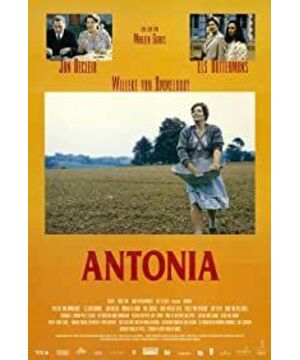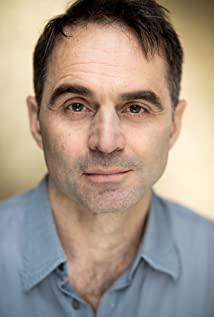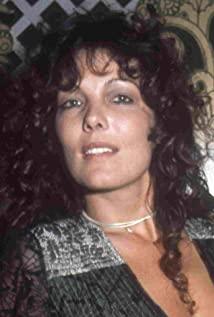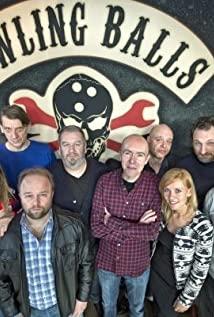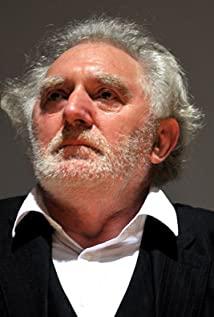"The Antonia Family" is the work of the famous Dutch female director Marlene Gris. It was screened at the Toronto Film Festival in 1995 and won the Academy Award for Best Foreign Language Film. The whole film, in a form similar to the chronology, in the continuous deconstruction and construction, establishes a matriarchal utopia, which conveys the concept of feminism and becomes an excellent text for feminist criticism.
1. Multiple deconstructions of patriarchal ideology
The story takes place in a small Dutch town after World War II. Most of the people in the small town have typical post-war characteristics—believe in Christianity, reject outsiders, and are silent about everything. Shakespeare once said: "A woman's name is the weak", which clearly implies a woman's fate in the context of Christianity. According to the "Bible", God only created Adam at the beginning of the world, and Eve made it out of his ribs to relieve Adam of loneliness. Therefore, women are attached to men — they become Christian culture. Deep-rooted part. In addition, the "Bible" also made many norms for women's words and deeds, requiring women to be silent in meetings, placing women in the position of obedience to men in the law, and requiring them to obey their fathers at home and their husbands after marriage. In a sense, this is nothing but the oppression of disadvantaged groups by those who have the right to speak for their own power and rights. This is also the symptom of the unequal structure of a patriarchal society. Turning to the film itself, Antonia’s mother is a devout Christian. However, when we and Antonia cast our eyes on the mother’s room, we found that there were hanging on the windows, candlesticks, and even the statue of the Virgin Mary. It is full of spider webs, which is obviously an exaggerated non-reality expression method, and the focus is on its second symbolism-to achieve the deconstruction of Christianity through its unclean appearance. In the film, when people worship in the church, we can clearly see men and women sitting on both sides, that is to say, in the process of worship, men and women are different. However, there is no such rule in actual life. This seems to be a deliberate design by the director. In addition, Antonia and the farmer Buss uncovered the scandals of the priest in the confession house and the priest’s return to the secular, making the film very good. Christianity, that is, the deconstruction of the faith level of the patriarchal society is more obvious.
The film also sharply deconstructed the typical interpersonal relationships in the patriarchal society. The three generations of Antonia, Danny Ellie, and Triss have different personalities, and none of them follow the order of the patriarchal relationship between the sexes. Monogamy is the iron law of the patriarchal society after the Enlightenment. It requires wives to be loyal to their husbands and to be good wives and beloved mothers. However, they have an ambiguous attitude towards men’s “stealing” behavior. . Marxism believes that “monogamy eliminates a woman’s power to extend her descent, leaving her in the modern nuclear family. The evolution to clan society, private property and monogamy have devalued housework, thereby reducing the status of women.” . At the beginning of the film, Antonia took her daughter Danny Allie into the audience’s sight, but Danny Allie’s father never appeared. This is a very important attitude of feminism-children don’t ask where they came from ("Piano Lesson" etc. The same approach is used in the movie). Bass came to propose to Antonia, on the grounds that "I don't have a wife, and you don't have a husband. My sons need a mother, and you are beautiful." This is the true psychological portrayal of many male courtships, and Antonia said this. The answer is "What for". After getting along, she gradually developed a good impression of Bass, and she didn't step into the marriage palace with him. They built a small wooden house in the countryside and met regularly here, and lived no less than a traditional model. Happy as a husband and wife. Danny Allie wanted a child but didn't want to get married. With the help of her mother and Lieta, she found a blond man and gave birth to Tris. The blond man didn't know anything about it. Tris and Lieta's son Simon fell in love, but he was not bound by the marriage system, and did not marry them, and lived together in another way. Tris got pregnant unexpectedly and got caught up in the entanglement of "whether or not this child". She is a university professor and has her own career. This brings up a very common and important issue in today's society-in occupation and How should women choose between childbirth? She finally chose to bring this child, Sarah, into the world. All in all, Antonia, Danny Ellie, and Tris are individuals who are independent in spirit and emotion. The film deconstructs traditional relationships such as marriage in a patriarchal society through the independent choice of female subject consciousness, and considers several kinds of equality. , Friendly and caring new type of interpersonal relationship.
The film also deconstructs the classic Hollywood narrative rules. Laura Mulvey’s "Visual Pleasure and Narrative Films" is the foundation of feminist film theory. In this article, she analyzes classic Hollywood commercial films and explains the way the patriarchal society unconsciously constructs films. The reason for the popularity of these films is that they satisfy the inner desires of the audience. The flat and close-up lens language alienates women into objects of desire, thereby satisfying the audience’s voyeuristic gaze; at the same time, "the film’s construction of charm Strong enough to allow the temporary absence of self while strengthening the self." Through narcissism and self-construction, audiences identify themselves as heroes on the screen who are heroic and handsome who can resolve all dangers, and are further controlled by men. Occupy women on the screen. In other words, in classic Hollywood movies, men are three-dimensional, continuous, deep, and narrative, while women are flat, fractured, close-up, and stared; men belong to the narrative sequence, and women belong to the spectacle sequence. . "The Antonia Family" completely subverts this classic narrative method, including women as the main body of the narrative. The narration of the entire film comes from the mouth of Antonia's great-granddaughter Sara. It’s easy to find that Sarah always took paper and pen to write and draw when she appeared, and watched the world around her with wide eyes. This is actually the personification of women’s writing. Women have the right to speak, and women are telling their own observations. To the history. There is also a very interesting detail in the film. The father Danny Allie finds for her child is a blond, tall, strong and handsome white man-this is precisely the image of the classic male protagonist in Hollywood movies. We follow Anthony Ya, Danny Elli, and Rieta observe and discuss this man from a distance, placing him under our gaze, which completely reorganizes the relationship between seeing and being seen between men and women-men are included in the spectacle sequence middle. In addition, the director deliberately did not give this man any lines, so that he was always silent, thus completely breaking the established structure of male and female voice.
The film also deconstructs all aspects of the patriarchal society. For example, Pete, who has violently treated sexual assaults twice, realizes the deconstruction of Phallocentrism; through the pessimism, despair and self-hanging of Fengge, it realizes the patriarchal society since the Enlightenment. The deconstruction of orthodox rationality, etc., and in the process of deconstruction, profoundly revealed the power and irrationality of the patriarchal ideology.
2. Multiple constructions of matriarchal utopia
The feminist book "The Mad Woman in the Attic" pointed out that the female images in male literature before the 19th century were either portrayed as pure and beautiful angels or vilified as cruel witches. Feminism points out that these two images are distortions and prejudices of women in the patriarchal society. "Angels" reflect the patriarchal culture's illusions and expectations of ideal women, while "witches" are produced by men out of "castration complex". The externalization of fear and anxiety towards women. "The Antonia Family", as a classic female film, broke the stereotyped dualistic female image and constructed a distinctive female group image—mother, intellectual woman, goddess boy, female artist, lesbian, ugly girl, mentally retarded girl , Weird girl... not only showed the audience a real and rich female group, but also full of metaphors. Tris often discusses philosophical issues with Feng Ge. This is the director’s response to "Why are there no female philosophers". She is naturally interested in mathematics and music (these are areas that have been monopolized by men for a long time) and loves to read Plato. , Nietzsche and Schopenhauer completely broke the nonsense that "women are inherently inferior to men", and further confirmed Beauvoir's view that women are not born, women are constructed. The ignorant, silent "old woman" was disciplined by the patriarchal society. Lesbians, ugly girls, mentally handicapped girls, and weird girls are obviously among the ugly "witches" in Hollywood classic movies, but the film justified its name through a series of narratives-pure love occurred between lesbians, ugly Women have a kind heart. When some female films show male images, they may have some vengeance in their subconscious minds, portraying men as stereotyped, single extreme and unreal images such as power, grumpiness, and machismo. This is using men. The hegemonic way to fight against male power repeats the mistakes of some male narratives. Marlene Gris raised his vision and constructed many new types of men, including the farmer Bath, who sings with her husband and the idealist scholar; the priest who is still vulgar, and the gentle lover; Vulnerable men who are bullied, and men who help women punish bullies. This is a new type of male with good qualities and more suitable for the long-term development of mankind as envisioned by the author, which reflects the author's sincerity and respect for the male community as a female.
The modern society’s advocacy of "competition" has reached a heinous level. Since childhood, we have been educated to constantly strive, to constantly surpass others, to get used to competition, and to become the strongest. This is also the Darwinian rule of natural selection. A further extension of modern society. Under the oppression of competitionism and consumerism, "living happiness" is not the meaning of life, "living success" is the purpose of life. People regard money, fame and wealth as their lifelong pursuits, and alienate them into indifferent individuals in the absurd modern society, and "speed" has gradually become synonymous with modern society. In this masterpiece of feminism, the director sets up a social environment in which the male economic system and the capitalist exploitation system are absent. People cultivate, weed, and harvest in the fields and lead a self-sufficient farming life. In this green world, man and nature are harmoniously unified, destroying the hierarchical system of human beings higher than nature in patriarchal society and the myth that man can conquer the sky.
More than that, Antonia helped the disadvantaged and took in the homeless. Danny Allie painted for Didi and William. Everyone held a grand wedding for them. Danny Allie lived with same-sex couples. Tris and Lieta were free. Take control of your own fertility...The feminist care ethics is successfully practiced in the film. Ka Gilligan pointed out in "Another Voice-Psychological Theory and Women's Development" that women's ethical qualities are different from those of men. Men are self-centered and emphasize individual rights, while women focus on the emotional relationship between responsibility and others. Women value emotions and others, resist competition, conquer, bully and other so-called natural laws. Feminist care ethics has risen from moral ethics to justice ethics. This charming utopia based on matriarchy has completely subverted the patriarchal competitive thinking mode and values, showing a kind of ultimate care for a happy society.
Standing on the philosophical level, "The Antonia Family" realizes female writing with rich images, diverse symbols, and ingenious narratives. In the continuous deconstruction and reconstruction, it imagines a new society with progressive significance and makes matrilineal The trait shines.
View more about Antonia's Line reviews


